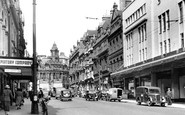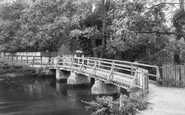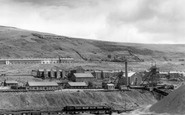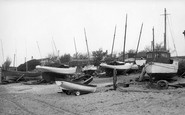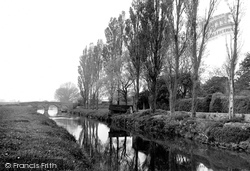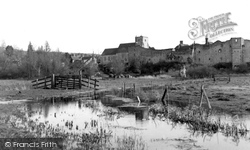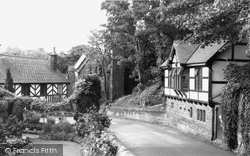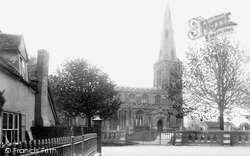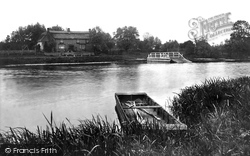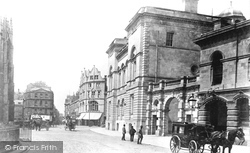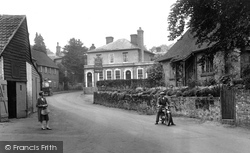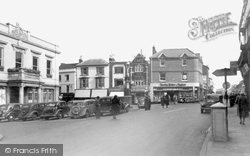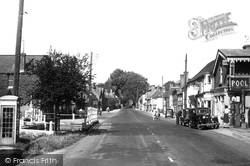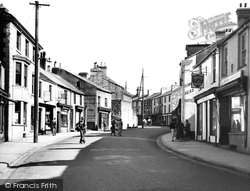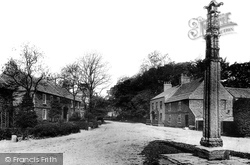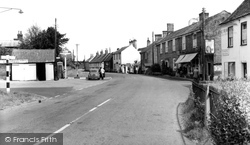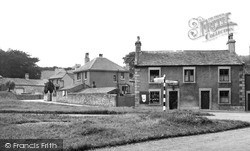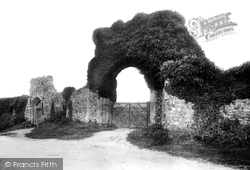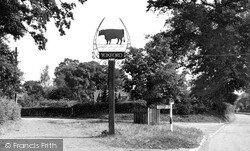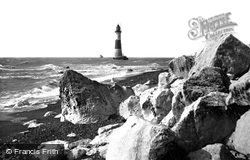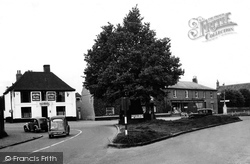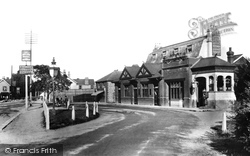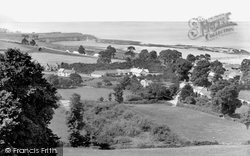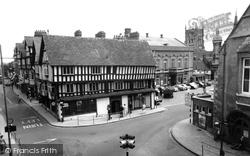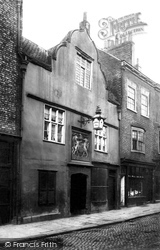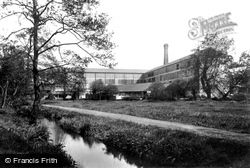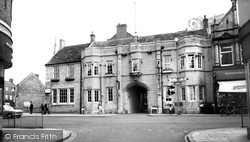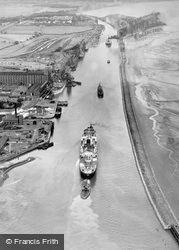Places
18 places found.
Those places high-lighted have photos. All locations may have maps, books and memories.
- Hythe, Kent
- Hythe, Hampshire
- Small Hythe, Kent
- Bablock Hythe, Oxfordshire
- Methwold Hythe, Norfolk
- Hythe, Somerset
- Hythe, Surrey
- Hythe End, Berkshire
- The Hythe, Essex
- Egham Hythe, Surrey
- West Hythe, Kent
- New Hythe, Kent
- Broad Street, Kent (near Hythe)
- Horn Street, Kent (near Hythe)
- Newbarn, Kent (near Hythe)
- Newington, Kent (near Hythe)
- Broad Street, Kent (near Hythe)
- Stone Hill, Kent (near Hythe)
Photos
360 photos found. Showing results 2,001 to 360.
Maps
101 maps found.
Books
10 books found. Showing results 2,401 to 10.
Memories
4,406 memories found. Showing results 1,001 to 1,010.
A Spy At Raf Bentwaters No Just My Dad Aircraft Spotting!
Dad recalled that when the USAF were based there, probably around 1955, maybe earlier, he'd decided to take a drive up the road that skirted the base to see if he could spot the new fighter ...Read more
A memory of Woodbridge in 1950 by
School Days
I lived at 27 Radnor Street, last but one tennament to be flattened. My first year of school was at the "new high school", on Bouquanaran; 10 class rooms open, we had to scramble among the bricks to get to class. Then I went to Radnor ...Read more
A memory of Clydebank in 1940 by
The People Of Kilfinan
The year my mum and dad got married in Kilfinan Church. My mum was born and brought up in Kilfinan Post Office where my granny, Mrs Maclachlan was the post mistress for many of my childhood years. I don't actually remember the ...Read more
A memory of Kilfinan in 1951 by
Grand Theatre
I remember going to the Grand Theatre at Christmas as a child from my Dad's works children's party. Our dads would pay so much a week for their children's Christmas party, and the young ones would have a party at the works ...Read more
A memory of Wolverhampton in 1959 by
Childhood In War Time Silsden
I grew up in Silsden and also worked in Silsden, as a weaver at Stocks Mill. I lived at 52 New Rd or shed side, as it was known. We lived almost opposite Fletchers mill gates, in a back-to-back two bedroomed terraced ...Read more
A memory of Silsden in 1943 by
'down Yer 'wey'.
Moved to Farncombe in 1942 from Datchet, but evacuated originally from Barking, London. I remember arriving at my new home at 1 Tudor Circle. My Step-father was a fireman in the AFS, who's ...Read more
A memory of Godalming in 1942 by
Dai 'the Globe'
Dai 'the Globe' was friendly with Briyn Williams, Ifor Rees, David Alford. We all used to meet at the Coronation Ballroom, Coronation Road. This was the main meeting place for us all. We would listen to the Four Aces and dance the ...Read more
A memory of Gilfach Goch by
Memories Of Margaret Beavan Home
I was a poorly child and on two occasions spent time at the Margaret Beavan Home in Lower Heswall around 1956 and 1958. I remember the house being very large and grand, as it would would be to a small child of ...Read more
A memory of Heswall in 1956 by
Troedrhiwfuwch Village Life
There are a few more observations I wish to make about Troedy. There is a common theme running through most of the memories posted on this website and that is one of very happy times gone by. As an outsider, I ...Read more
A memory of Troedrhiwfuwch by
The Marque
Roughly in 1932 there was a religious group which was called the Assemblies Of God Pentecostal Church. Albeit they had been going on since 1900-14 they were a relatively unknown church - as of today they are unknown to many of us even ...Read more
A memory of Sheffield in 1930 by
Captions
4,899 captions found. Showing results 2,401 to 2,424.
The Arun, described as the second fastest-flowing river in the country, had strong tides; by the 1930s, they reached Pulborough, where two old stone bridges crossed the river.
Amberley Castle, which lies on higher ground above the River Arun's flood plain, is in fact a fortified manor house constructed between the 13th and 16th centuries by the Bishops of Chichester as part
It was built by the Barton family in 1883. The estate of Caldy Manor was purchased by Mr R W Barton in 1832 for the then princely sum of £18,900.
This beautiful parish church of All Saints was built by the abbot of Ramsey for his manor estate in the late 14th and 15th centuries. The cobble stone walls were all originally plastered.
The rushes on the bank of the river were harvested for rush matting by the Arnold family; they were dried hanging over lines beside the river. On the other side is the Ferryboat Inn.
Back into town, this view from Orange Grove looks along past Brydon's Municipal Buildings of 1893, 'rendered necessary by the large increase of public business since the erection of the central building
Two local residents, one mounted on an early motorbike, pass the time of day by the Prince of Wales pub in the centre of the village.
By the late 17th century it was a prosperous market town. Note the Hovis sign, and Timothy White's and Taylor's next door (centre).
Situated by the tranquil waters of the River Test, the town is an important fishing centre. In this picture we can see an old telephone box on the left and the local garage on the right.
This spirit is perhaps due to its history: the villagers were united by the infamous Penrhyn Lockout, when the quarry owner, Lord Penrhyn, locked his workers out, bringing them ultimately to heel by great
It was originally the home of the Brigantes, but it was then taken over by the Roman Ninth legion; there are still remains of sandstone walls, a quarry, pavements, mosaic flooring and a stadium.
The view is dominated by the gents' loos of the Queen's Head (left), which were demolished in 1982-83. The roof of the Old Vicarage rises behind.
Beside this part of the village green we see a grocer and newsagent's shop by the signpost pointing to Carnforth in one direction, Longridge in the other.
Following the ferocious storms of 1286-88, the River Blyth was diverted, the harbour partly blocked and huge areas of land were devoured by the sea, all of which marked the beginning of the decline of
Yoxford was among the first villages in Suffolk to have its own particular sign, which stands by the A12.
Built in 1901, it replaced the former Bell Tout Light on the top of the cliffs, and was itself replaced by the Sovereign Lightship anchored off-shore.
His progress was 'considerably retarded by the roughness of the roads and a powerful gale'.
This building, with its splendid mansard roof, was demolished in 1927 to be replaced by the present mock Tudor public house now awaiting demolition.
It is quite a panorama; on land to the left, the West Somerset railway curves away from the coast, crossed by the road to Watchet.
It was built by Abbot Lichfield only a few years before Evesham's abbey was dissolved by Henry VIII, and would probably have been destroyed had it not been bought by the townspeople.
The land was acquired by the City Corporation in 1934 at a cost of £8,000. The Debtors' Prison was opened as a museum, which was then extended to the Women's Prison building.
Pullman's Westbrook Mill produced soft, chamois type leathers; Gay & Co in Ockford Road worked on small skins such as rabbit; and Rea and Fisher's by the railway, the heavier hides.
By the mid 1950s much had changed, and the front of the Angel and Royal Hotel indicates the reason (see G43032 and G43099).
On the right is the river Mersey, and to the left, by the building with a tall chimney, is the entrance to the Shropshire Union Canal. This area, partially redeveloped, is now home to The Boat Museum.
Places (18)
Photos (360)
Memories (4406)
Books (10)
Maps (101)



